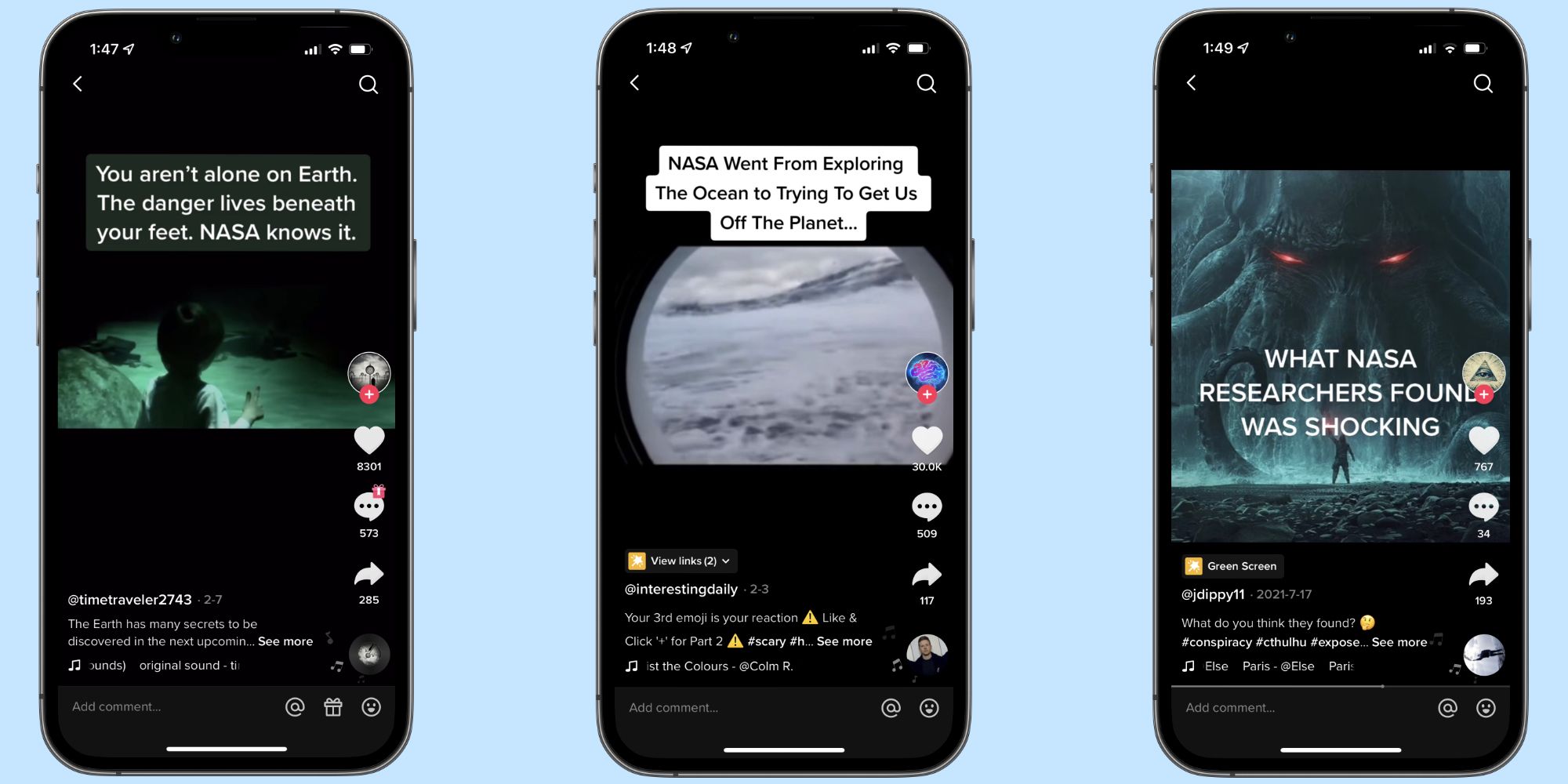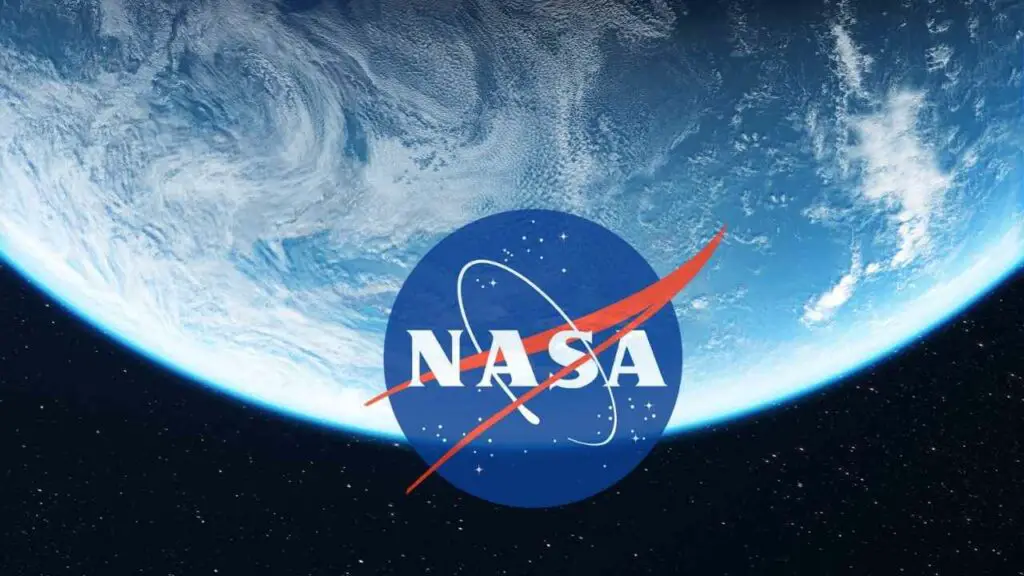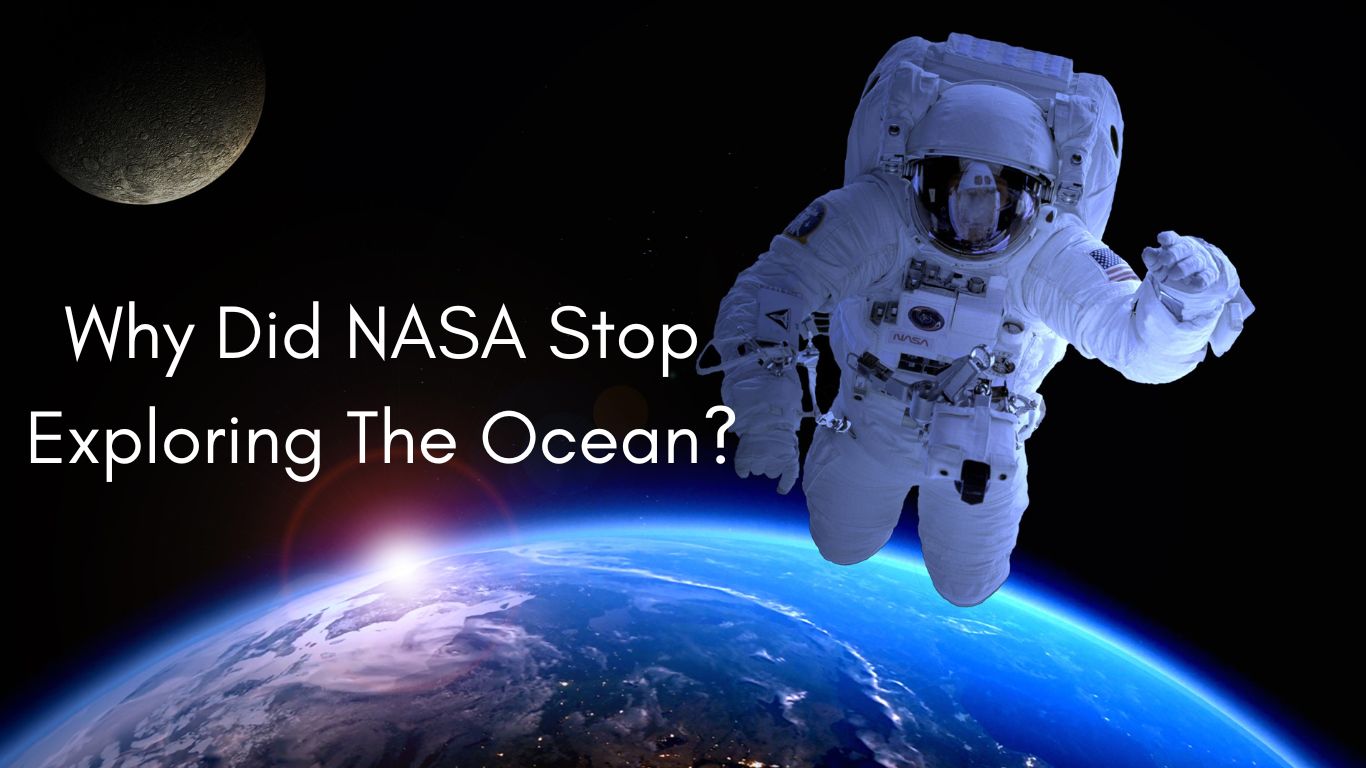Why Did NASA Stop Exploring The Ocean? Unveiling The Truth Behind The Shift
Let’s dive straight into the deep end, folks. The ocean has always been a mysterious playground of wonders—teeming with life, hidden ecosystems, and uncharted territories. But here’s the million-dollar question: why did NASA stop exploring the ocean? You’ve probably heard whispers about it, maybe even some wild conspiracy theories. Well, today, we’re going to break it all down for you. So buckle up and get ready for an adventure that’s about to blow your mind.
Picture this: NASA, the big brain powerhouse that brought us the moon landing and Mars rovers, deciding to step away from ocean exploration. Sounds kinda fishy, right? But before we dive deeper into the "why," let’s take a moment to understand the importance of ocean exploration. The ocean covers about 70% of our planet, and we’ve barely scratched the surface. It’s like having a giant library and only reading the first chapter of one book.
Now, this isn’t just a random question. People are curious, and rightly so. The ocean holds secrets that could change the way we understand life, climate, and even our place in the universe. So, if NASA had the resources and the know-how, why did they seemingly pull the plug? Let’s find out, shall we?
Read also:Goldie Hawn And Oliver Hudson The Unbreakable Bond That Sparkles Like Gold
The Early Days: When NASA Was All About the Ocean
Back in the day, NASA wasn’t just about space. Oh no, they were all about the ocean too. In the 1960s and 70s, NASA launched several projects aimed at studying the deep blue. These projects weren’t just for fun; they were serious science. NASA wanted to understand how extreme environments worked, and the ocean was the perfect testing ground.
One of the coolest projects was the NEEMO (NASA Extreme Environment Mission Operations) program. This program sent astronauts to live underwater for weeks at a time. Why? Because living underwater is a lot like living in space. The challenges are similar—low gravity, isolation, and the need for specialized equipment. It was like a dry run for future space missions.
But then something changed. NASA started shifting its focus, and the ocean took a backseat. Was it budget cuts? Was it lack of interest? Or was there something more? Let’s dig deeper.
Why Did NASA Stop Exploring the Ocean? The Budget Blues
Let’s talk about the elephant in the room—money. Exploring the ocean isn’t cheap. Sending equipment and people underwater requires a ton of resources. And let’s be real, space exploration is way sexier than ocean exploration. The public loves the idea of rockets and astronauts, but submarines and marine biologists? Not so much.
In the late 1970s and early 1980s, NASA’s budget started getting squeezed. Congress was more interested in funding space missions than ocean adventures. And let’s face it, the space race was a big deal back then. The Cold War was on, and the U.S. wanted to show the world it could conquer the final frontier. So, the ocean exploration programs got the boot.
But it wasn’t just about money. NASA also faced some technical challenges. The technology for deep-sea exploration wasn’t as advanced as it is today. It was hard to build equipment that could withstand the extreme pressure and temperature of the deep ocean. So, NASA decided to focus its efforts where it could make the biggest impact—space.
Read also:Samadhi Zendejas The Rising Star Redefining Success In The Spotlight
Was It Really About Budgets? Or Something Else?
Now, here’s where things get interesting. Some people believe that NASA didn’t stop exploring the ocean because of budgets. They think there’s more to the story. Conspiracy theorists love to speculate that NASA found something they didn’t want the world to know. Maybe they discovered ancient ruins or alien technology. Or maybe they just didn’t want to compete with other organizations that were doing a better job.
Let’s not dive too deep into the conspiracy theories, but it’s worth noting that the ocean is still largely unexplored. We know more about the surface of Mars than we do about the ocean floor. So, who knows what’s down there? Maybe NASA found something and decided it was better left alone.
The Shift to Space: A Matter of Priorities
Alright, let’s be honest. NASA’s shift from ocean to space exploration was mostly about priorities. Space exploration became the shiny new toy, and everyone wanted a piece of it. The Apollo program, the Space Shuttle, and the International Space Station—all these projects captured the public’s imagination in a way that ocean exploration never could.
But here’s the thing: just because NASA shifted its focus doesn’t mean ocean exploration stopped altogether. Other organizations like NOAA (National Oceanic and Atmospheric Administration) and private companies like OceanX have taken up the mantle. They’re doing some amazing work, discovering new species, mapping the ocean floor, and even finding shipwrecks.
So, while NASA may not be leading the charge anymore, the ocean is still being explored. And who knows? Maybe one day NASA will come back and join the party.
What Did NASA Achieve in Ocean Exploration?
Before NASA stepped away from ocean exploration, they made some pretty impressive discoveries. Here are just a few:
- NEEMO missions that tested new technologies for space exploration.
- Studies on how extreme environments affect human physiology.
- Research on underwater ecosystems and marine life.
- Advancements in robotics and underwater vehicles.
These achievements laid the groundwork for future ocean exploration. Even though NASA isn’t as involved today, their early work continues to inspire scientists and explorers around the world.
The Ocean vs. Space: A Tale of Two Frontiers
Let’s face it, the ocean and space are both incredible frontiers. They’re both full of mystery and wonder, and they both have the potential to teach us so much about our world. But they’re also very different. The ocean is right here on Earth, accessible (sort of), and teeming with life. Space, on the other hand, is vast, empty, and full of unknowns.
So, why did NASA choose space over the ocean? Part of it was the challenge. Space exploration was the ultimate test of human ingenuity and determination. It was about pushing the boundaries of what we thought was possible. But it was also about the politics. The space race was a global competition, and the U.S. wanted to win.
That’s not to say the ocean isn’t important. In fact, some scientists argue that understanding the ocean is just as crucial as understanding space. The ocean regulates our climate, provides food and resources, and is home to countless species. Without the ocean, life on Earth wouldn’t exist.
Why Should We Care About Ocean Exploration?
Here’s the deal: ocean exploration matters. It matters a lot. The ocean holds the key to so many of the world’s problems. Climate change, biodiversity loss, and even the search for new medicines—all these things depend on understanding the ocean.
And let’s not forget about the economy. The ocean is a major driver of global trade and commerce. It’s also a source of jobs and livelihoods for millions of people. So, if we want to ensure a sustainable future, we need to keep exploring the ocean.
The Future of Ocean Exploration: Who’s Leading the Charge?
So, where does that leave us? NASA may not be leading the charge anymore, but that doesn’t mean ocean exploration is over. In fact, it’s more exciting than ever. New technologies like autonomous underwater vehicles (AUVs) and remotely operated vehicles (ROVs) are making it easier and cheaper to explore the deep sea.
Private companies are also getting in on the action. OceanX, for example, is a nonprofit organization dedicated to exploring the ocean and sharing its wonders with the world. They’ve got some seriously cool gear, including a research vessel equipped with state-of-the-art technology.
And let’s not forget about citizen science. Thanks to advances in technology, ordinary people can now contribute to ocean exploration. Apps like iNaturalist and Ocean Sanctuaries allow anyone with a smartphone to report sightings of marine life and help scientists track changes in the ocean.
Will NASA Ever Come Back to Ocean Exploration?
Here’s the million-dollar question: will NASA ever come back to ocean exploration? The answer is maybe. NASA is always looking for new challenges, and the ocean is definitely one of them. With the rise of climate change and the increasing importance of understanding our planet, it’s possible that NASA will revisit ocean exploration in the future.
In fact, NASA is already involved in some ocean-related projects. They’re using satellites to study sea level rise, ocean currents, and other important factors. And who knows? Maybe one day they’ll launch a new program dedicated to exploring the deep sea.
Lessons Learned: What Can We Take Away?
So, what can we take away from all this? First, the ocean is an incredible frontier that deserves our attention and respect. Second, NASA’s decision to shift its focus from ocean to space exploration was driven by a combination of factors, including budget constraints, technical challenges, and political priorities.
But here’s the most important lesson: exploration matters. Whether it’s the ocean or space, we need to keep pushing the boundaries of what we know. The more we explore, the more we learn, and the better equipped we are to face the challenges of the future.
Final Thoughts: What’s Next?
Alright, let’s wrap this up. Why did NASA stop exploring the ocean? The answer is complex, involving budgets, priorities, and the politics of the time. But the good news is that ocean exploration is still alive and well, thanks to organizations like NOAA and private companies like OceanX.
So, what’s next? Who knows? Maybe NASA will come back to the ocean one day. Or maybe new technologies will make ocean exploration even more exciting and accessible. One thing’s for sure: the ocean is full of mysteries waiting to be uncovered. And that’s something we can all get behind.
So, what do you think? Should NASA come back to ocean exploration? Or should they focus on space? Let us know in the comments below, and don’t forget to share this article with your friends. Together, we can keep the conversation going and inspire the next generation of explorers.
Table of Contents
- Why Did NASA Stop Exploring the Ocean? Unveiling the Truth Behind the Shift
- The Early Days: When NASA Was All About the Ocean
- Why Did NASA Stop Exploring the Ocean? The Budget Blues
- The Shift to Space: A Matter of Priorities
- The Ocean vs. Space: A Tale of Two Frontiers
- The Future of Ocean Exploration: Who’s Leading the Charge?
- Lessons Learned: What Can We Take Away?
- Final Thoughts: What’s Next?
Article Recommendations


